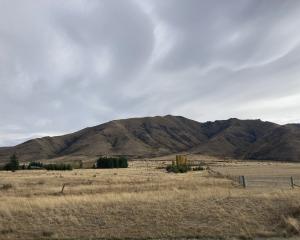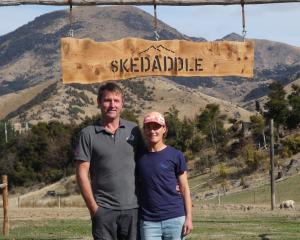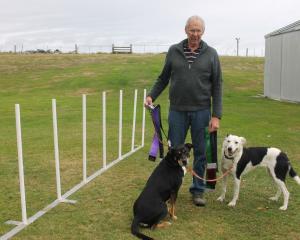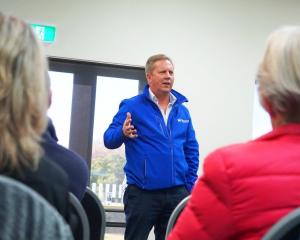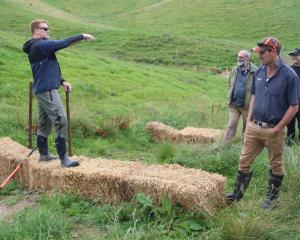
That is something they could not have done at the more traditional formal dinner.
Mr and Mrs Eade, of Granity Downs, Pourakino Valley, near Riverton, were named the Southland regional supreme winners this month.
The couple, their children Martha (10), Georgia (8) and Louis (6) and Mr Eade’s parents, Tommy and Betty Eade, and their sole employee, Alex De’Lay, were also on hand to celebrate.
‘‘We had tea, sat down to watch it with a few drinks and had a few more drinks after we realised we won it,’’ Mr Eade said.
They had entered the New Zealand Farm Environment Trust’s contest before but had never won or placed, so were delighted with their success.
They will go on to compete in the national competition against 10 other regional winners for the Gordon Stephenson Trophy.
The couple have been sheep, beef, breeding and finishing farmers, with about 3500 stock units on 260ha (220ha effective), for about 19 years.
‘‘We have about 90% sheep and 10% cattle,’’ Mr Eade said.
‘‘We fatten calves and sell them in January and then we carry on with intensive sheep finishing.’’
They buy Hereford/Friesian-cross calves because they are easier to on-sell, are quiet and grow well.
‘‘We buy the calves in at 100kg and sell them at 15 months at about 360kg, on average.’’
Once the cattle are off the property they then focus on their Tefrom composite lambs and lamb hoggets.
They are reliant on 18ha of winter crop, usually swede and kale, and have to be particularly careful with stock management during winter, as the area attracts a high rainfall.
Sheep are moved every three days, rather than daily, which means less sediment movement and run-off.
‘‘We have to be vigilant about run-off and most of my buffer zones are at least 10m.’’
The average lambing percentage is 160% to the ram, while hoggets average about 100%.
‘‘I am part of the Red Meat Profit Partnership group that aims to getting hogget lambing percentages to 150%.’’
The lambs were sent away at about 18kg.
Mr Eade belongs to the Pourakino Catchment Group, each of whose members has identified critical source areas and completed farm environment plans, farm focus plans and nutrient budgets for their properties.
Granity Downs was a case study for Ballance’s Mit’Agator programme about a year ago, which identified ‘‘hot spots’’ for nutrient loss, water quality, sediment and soil erosion and fertiliser application.
They have fenced off 29ha, which is planted in native bush, and most of a small flood-prone area that is planted in pines.
He said the judges were impressed with the condition of stock.
‘‘We are very vigilant on condition scoring, doing it six to eight times a year between weaning and mating, and we run the mobs accordingly.’’
Mr Eade is also a member of the Gold Coast farm discussion group and treasurer of the Riverton Primary School board of trustees.
Mrs Eade has a large garden and is also president of the friends of the school group.



